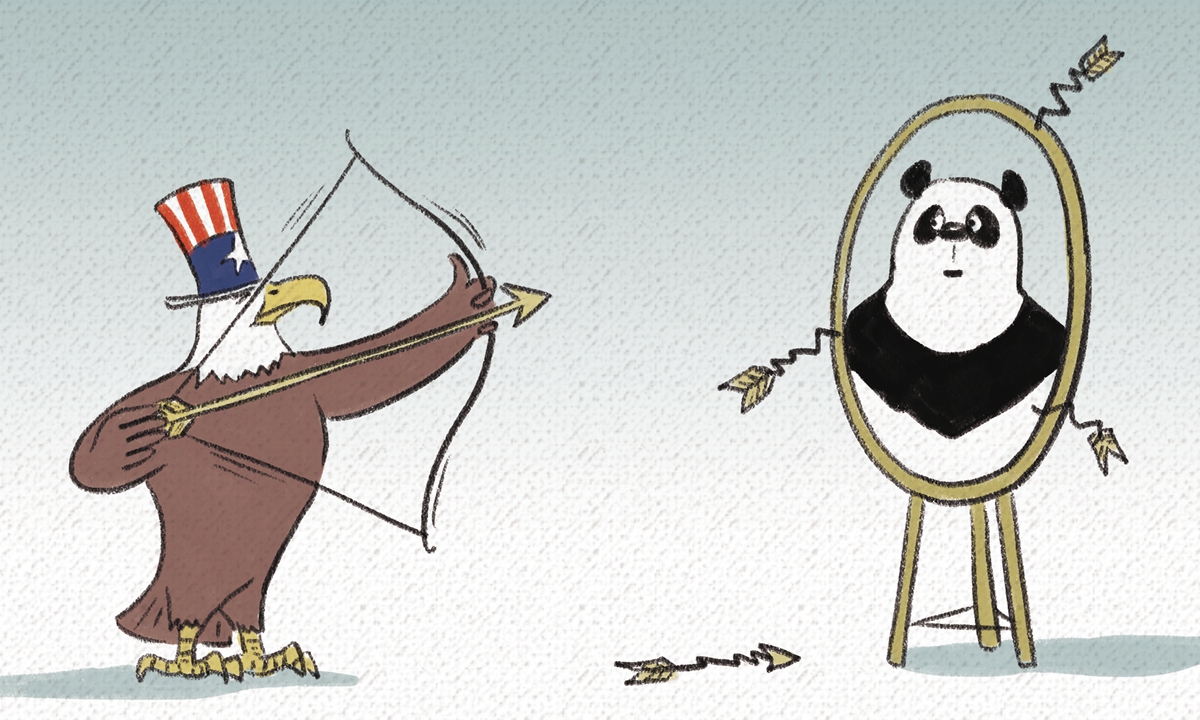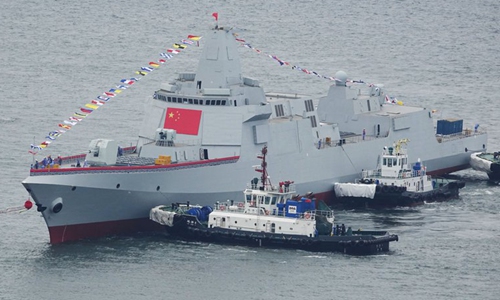US-led NATO-like alliance not reliable for India in border talks with China: experts
By Liu Xin and Liu Xuanzun Source: Global Times Published: 2020/9/1 20:58:40

Illustration: Liu Rui/GT
The US has brought up again the idea of building an alliance, similar to the North Atlantic Treaty Organization, with India, Australia and Japan to form anti-China network in the Indo-Pacific region, a move that Chinese analysts said will face obstacles, as the regional countries may prefer to remain a certain level of independence to maximize benefits from strained China-US ties.
Experts warned that instead of relying on the US to pressure China or playing geopolitical games, India should focus on solving border disputes by negotiating with China.
On Monday, China slammed Indian troops for crossing the Line of Actual Control (LAC) near the south bank of Pangong Lake on Monday, which severely violated the consensus reached by the two sides.
The same day, during talks with former US ambassador to India Richard Rahul Verma at the US-India Strategic Partnership Forum, US Deputy Secretary of State Stephen Biegun said the US aims to formalize closer Indo-Pacific defense relations with India, Japan and Australia - also known as "the Quad" - into a NATO-like alliance.
Chinese military analysts said that the US effort to form a NATO-like group against China is part of its Indo-Pacific strategy and an attempt to put its failing island chain strategy together.
In July, the four countries conducted naval drills near China - the US and India in the Indian Ocean, and the US, Japan and Australia in the Philippine Sea, each featuring a US aircraft carrier.
These kinds of drills could put pressure on China, and should not come as a surprise if the four countries conduct more, analysts said. The US could use Japan and Australia as a frontline and advance bases, which can also offer logistical support, they said, noting that the four countries could also share intelligence on Chinese military activities.
Beijing-based naval expert Li Jie told the Global Times on Tuesday that the countries, particularly India, could attempt to lock the Strait of Malacca down, targeting China's oil and natural gas supplies, should a military conflict break out between China and India.
China can organize escort task groups, including aircraft carriers, amphibious assault ships and Type 055 destroyers on both sides of the Strait as a countermeasure, Li said.

Inset: Gao Ke, the captain of the first Type 055 destroyer Photo: Capitalnews
In a more aggressive possibility, the US could deploy short to intermediate range missiles to these countries, most likely in Japan and Australia, analysts said.
The US announced its plan to deploy such missiles in the Asia-Pacific region after withdrawing from the INF Treaty, but no country has accepted its proposal yet.
China has an advantage over the US in terms of missile technologies and numbers, and the US' regional allies will not want to become human shields and sacrificial lambs of the US, analysts said.
Experts also warned India that it should not go astray further by relying on the US, as India's attempt to pressure China on border issues by enhancing ties with the US would never work.
Little detail was released on how the US would work with India and the other three on "defense relations" at the forum. But China was mentioned as many as 33 times. Biegun admitted that the goal of the US is to draw the four and other countries in the region to work together against "a potential challenge from China."
"The US is gaining chips in tempting India to join its anti-China alliance, but India has its own plans as it wants to remain diplomatically and strategically independent, and is also using strained China-US ties to maximize its interests," Qian Feng, director of the research department at the National Strategy Institute at Tsinghua University, told the Global Times.
Qian noted that against the backdrop of the border disputes with China, India may get closer strategically to the US, and the defense cooperation with "the Quad" may be on sharing information, buying some weapons from the US, and enhancing coordination against China.